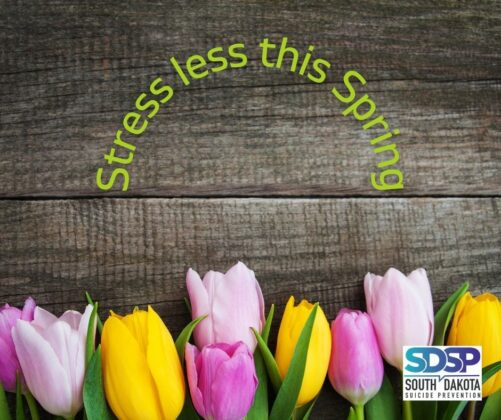Because April is Stress Awareness Month, it is a good time to learn healthy coping strategies to reduce the physical and mental strain that stress can bring.
“Everyone experiences stress in different ways,” said Department of Social Services Cabinet Secretary Laurie Gill. “Spring planting, drought, work problems, family situations, academic pressure, losses, major life changes, and the list goes on – stress comes at us constantly and how we react to it could mean life or death.”
Stress takes a toll on us physically, mentally, and emotionally. Stress can leave us feeling sad, frustrated, anxious, and helpless and could lead to depression and substance use disorders. Take steps to learn healthy ways of coping with stress:
- Manage your time – prioritize your activities to help keep you from feeling overwhelmed.
- Practice relaxation – deep breathing and meditation are good ways to calm yourself.
- Get active – exercise releases stress-relieving hormones and improves your overall physical health.
- Set time aside for yourself – taking time for self-care isn’t selfish.
- Be mindful – stay present and focus on what is happening around you.
- Get enough sleep – adequate sleep is essential to resetting your mind.
- Avoid drugs and alcohol – contrary to popular belief, they don’t help reduce stress.
- Talk to someone – communicating what you’re feeling can help.
- Recognize when you need help – there is no shame in asking for what you need.
In the worst scenarios, mounting stress can lead individuals down dark mental pathways. Experts remind us that it is important to reach out for help if the stressors in your life are becoming too much to handle. Starting a simple conversation with someone is a good way to disrupt the stress in your life.
“Stressful life events can trigger suicidal thoughts in some people,” Gill said. “Stress is temporary; suicide is not. While things may seem overwhelming, life can and will get better. And there are so many people in our lives and our communities that want to be that helping hand, that friendly voice.”
To find more information and resources, please visit sdsuicideprevention.org.
If you need immediate help with thoughts of suicide, call 1.800.273.8255 or text “Help” to 741741. If you, or someone you love, is experiencing a behavioral health challenge, help is available at dss.sd.gov/behavioralhealth/services or by calling the South Dakota Treatment Resource Hotline at 1.800.920.4343




